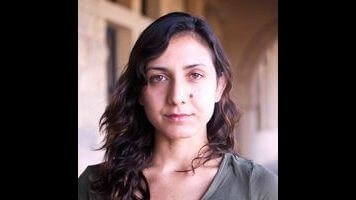Unlikable characters make for remarkable fiction in Homesick For Another World

“If he gave her an opportunity to reject him, he was sure she’d take it,” reasons Mr. Wu, the lonely title character of Ottessa Moshfegh’s story. He is in love with the woman who works at his neighborhood arcade. By way of courtship, he sends the woman an insulting text message, intended to incite her insecurities and make her vulnerable to his advances. The story descends from there, ending, like so many other pieces in Homesick For Another World, in grim irony. If the characters in Moshfegh’s stunning debut short story collection have anything in common, it’s that they’re after some kind of life improvement, yet they go about achieving it in all the wrong ways, often deceiving or mistreating others in the process. Moshfegh displays a preternatural ability in short fiction, her stories impeccably shaped, her sentences sharp, and her voice controlled and confident; the stories of Homesick For Another World are near perfect examples of the form.
Moshfegh’s previous full-length works have already earned the author ample praise. McGlue, her strange and darkly funny novella, won the Modern Prize In Prose from experimental press Fence in 2014. Last year, her noir-tinged Eileen won the PEN/Hemingway Award and was shortlisted for the Man Booker, and in August it was reported that Girl On The Train screenwriter Erin Cressida Wilson would adapt the novel.
Yet Moshfegh fans seem most excited by her short fiction, which in 2013 earned the prestigious Plimpton Prize from The Paris Review, where many of Homesick’s stories first appeared (including “Mr. Wu,” originally as “Disgust”). What makes the pieces composing Homesick so thrilling, in addition to their technical inscrutability, is their ability to surprise—with their ferocity, depravity, and casual violence, with their very ability to so consistently unsettle. “Some days, to keep myself from eating, I’d hit my head against a wall or sock myself in the stomach. Sometimes I hyperventilated or strangled myself a little with a towel,” explains the male protagonist of “Malibu.” In “The Weirdos,” after a button pops off his favorite blazer, the narrator’s manically upbeat boyfriend retreats into the bathroom to scream into a towel. “Nothing made me happy,” the narrator later says. “I went out to the pool, skimmed the surface of the blue water with my hand, praying for one of us, my boyfriend or me, to die.”
Far from idealists, the characters’ wants are often motivated by hate, and within it, a desire to dominate or possess other people. Similar to the aforementioned Mr. Wu, the protagonist of “An Honest Woman” manipulates the object of his infatuation, a much younger neighbor he’s been eavesdropping on, maintaining a smug, delusional view of himself, despite his misogynistic creepiness. Like Mary Gaitskill, Moshfegh is acutely perspicacious in the minute yet palpable power shifts occurring between people, especially when one is trying to control the other.
Amid the collection’s dark tone, Moshfegh imbues an equally dark humor, at times absurd, at others melancholy and bone-dry. “Oh, okay, there were a few fine times,” the alcoholic narrator of “Bettering Myself” admits. “Once, I found a twenty-dollar bill in a pair of old jeans.” Such humor is inseparable from her characters’ pain, their wild mistakes, the impossibility of escaping the conundrum that is themselves. If you’re the kind of person who laughs when the grandma gets axed in “A Good Man Is Hard To Find,” you’ll be right at home in Homesick. The Flannery O’Connor parallel doesn’t end there, with the comparison most apt in the standout story “Slumming,” in which a middle-aged teacher summers in a small, depressed town, idly consuming drugs and coldly observing the area’s inhabitants: “You’d think that, sitting there, oozing slowly toward death with every breath, they’d all go out of their minds. But no—they were too dumb for insanity.” “Slumming” is well worth its longer setup; once the action begins in earnest, the narrator’s previously benign callousness results in potentially grave consequences.
Such bad behavior may seem shocking, yet it exists along the spectrum of more everyday transgressions—spinning the truth, telling white lies, deluding oneself. Shifts take place within these characters, but Moshfegh doesn’t force them into epiphany or contrition; rather, like an indifferent god, she watches them impassively, waiting to see what terrible thing they’ll do next.
Purchase Homesick For Another World here, which helps support The A.V. Club.